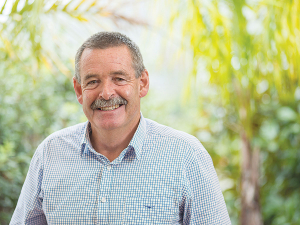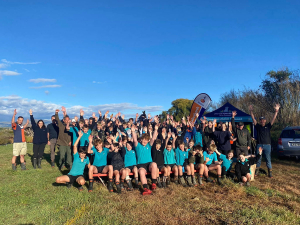Farmers regularly hire subject specialists such as accountants, vets, lawyers and general farm consultants.
Alec MacKay says that with more requirements to be met by farmers around resource and environmental issues, utilising the skills of additional subject specialists can add real value to the quality of integrated farm plans.
Mackay, a soil scientist, is leading a two-year study supported by the Primary Industries Sustainable Land Management and Climate Change fund on the value of expanding the range of subject specialists being used by farmers. This involves working with farmers in the Hurunui District in the South Island (Hurunui District Land Care Group) and King Country in the North Island (King Country River Care Group).
The two trial farms in year one selected specialists in soils and terrain, indigenous vegetation, carbon sequestration and the emissions trading scheme. Mackay says just a year into the trial there is strong evidence to suggest that these subject specialists around the farm table add real value.
“Farm planning is a new area for farmers and the primary sector,” he told Rural News. “While some farmers do have base farm plans already, with new legislative requirements, alongside the growing expectations of the market the sector needs to acquire some new skills to deal with these challenges.”
MacKay adds that it’s not just farmers who need to upskill, but also farm service industries right through to regional councils and the government ministries who may need to have a hard look at what capabilities they have.
“That trusted group around the farm table in the future will need to go beyond just the farm consultant,” he adds. “It might include an ecologist, soil specialist and someone who can assist with farming with carbon.”
MacKay says so far one of the major findings of the study is the strength of the subject specialists in the interpretation and integration of data and information with the farmer into the farm business planning process and works program.
“The value of the latter cannot be overstated.”
Mackay believes that a farm plan is critical for the ongoing success of the business.
He adds that identifying risks and opportunities makes good business sense and the key to a successful plan is having quality data and information, along with sound advice to complete the farm planning process and works program.
“In my view, at the moment, there is a real danger that we going to turn farm planning into a compliance tool.”
The Capability Issue
It’s been raised before, and Alec Mackay raises it again about the lack of skilled subject specialists in the primary sector.
He says the sector needs to identify the skill gaps and make conscious investments to build new capability.
“Personally, I don’t see those capabilities being developed and growing out there in the sector right now,” he told Rural News. “I think we even have a skill shortage in our traditional areas – let alone in some of these emerging subject areas.”
MacKay says there is already limited numbers of farm consultants and a whole generation of these are moving towards retirement.
“I don’t see them being replaced. In the area of land resource mapping, soil conservation, terrestrial and aquatic ecology there is very limited capability available. There are a limited number of students coming out of universities with those skill-sets and in the future we are going to need people with those skills.”
Massey University has been trying to close this gap by running short courses on farm planning – that is helping.
Mackay says these courses provide the underlying knowledge and some skills to produce a base farm plan, which is the precursor to the overall integrated farm plan and a starting point for engaging subject specialists.
He says for farmers to do a big plan by themselves is probably a stretch and it needs specific input from a subject specialist in certain areas.

















